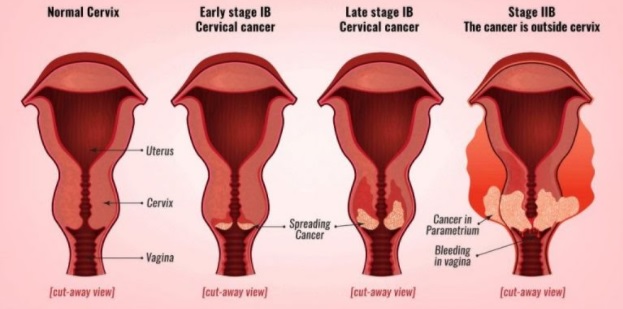What is Cervical Cancer?
When cancer starts in the cervix, the lower, narrow end of the uterus that connects the vagina to the upper part of the uterus, it is called cervical cancer.
Cervical cancer is highly preventable in most western countries because screening tests and a vaccine to prevent human papillomavirus (HPV) infections are available. When cervical cancer is found early, it is highly treatable and associated with long survival and good quality of life.
What are the Symptoms of Cervical Cancer?
-
Abnormal vaginal bleeding
-
Unusual vaginal discharge
-
Bleeding after intercourse
-
Pelvic pain
-
Leg pain
-
Painful urination
-
Unexplained weight loss
-
Constant fatigue
-
Heavy or prolonged menstrual cycle
Contact our office today if you believe you may be at risk and/or are experiencing some of the symptoms listed above. Our team of doctors will determine the course of treatment that is best suited for you.

What are the Risk Factors for Cervical Cancer?
-
There are several factors that can increase the risk of developing cervical cancer, some of which include:
-
Having Human Papillomavirus (HPV) is the cause of most cervical cancers. Particularly high risk HPV is what may trigger cervical cancer.
-
Sexual history
-
Age - most cases of cervical cancer are among women over the age of 35.
-
Smoking
-
A weakened immune system HIV, the virus that causes AIDS, can put people at greater risk by weakening their immune system.
-
Long term birth control pill use (five or more years).
-
Having multiple full time pregnancies - women who have had 3 or more full-time pregnancies are at an increased risk of developing cervical cancer.
-
Young age at first full-time pregnancy - women who were under 20 years old when they had their first full-time pregnancy
-
Family history


